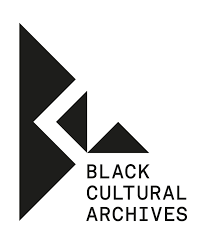
Numerous archival documents record action around the forms of exclusion some Black students faced in schools. Some councils established “support classes” or “disruptive units,” also known as ‘sin bins’, in secondary schools for students with “emotional and behavioural difficulties”. Campaigners and concerned parents considered these dumping groups for unwanted students. Black children were over-represented in these spaces. Information leaflets described the policy and its effects as discriminatory, in the ways it worked to label, marginalise and segregate students, ultimately limiting their educational opportunity. Many mothers found themselves acting as an advocate for their child against the school. United Black Women's Action Group (UBWAG), co-founded by the campaigner, politician and mother, Martha Osamor, was one organisation that offered school mediation support. Women’s and parent’s organisations raised awareness of and campaigned against sin bins. The proliferation of black supplementary schools, a system in which students received academic tuition and which mothers often worked within, were another community intervention.
[Image: article photocopied from 'Grassroots' entitled 'Parents Take Steps Over Inadequate Education' c1979, DADZIE/1/1/30]
A distinctive element of Black women’s motherhood in 1970s Britain were unjust experiences of police and schools. Black youth were unfairly targeted by police at this time. This practice was normalised by the ‘sus law’ – police had the discretion to stop and search, arrest and punish anyone suspected of loitering with criminal intent, under section 4 of the 1824 vagrancy act. A National Scrap SUS Conference highlighted research showing that young Black people were most likely to be charged under SUS, regardless of their situations: “A typical SUS defendant is a 16-17 year-old Black youth”, reads the conference notes, “as likely to be working, a student or unemployed”. Information and practical support could be found among community organisations and parents action groups, such as West Indian Parents Against Sus. For each Black youth unjustifiably in trouble, there was a mother dealing with the ramifications in private.
[Image: ‘Black Women in Britain Speak out’ c1980, DADZIE/1/8/1]


